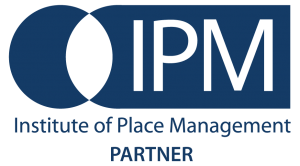The concept of creative placemaking dates back to the 1960s, but it is arguably important now more than ever.
We Group’s Business Development Manager Ron Salmon explores why.
In general people like people, and the absence of human activity can break down the individual’s mental well-being, ruin community spirit and affect our collective consciousness towards the good of others. This isn’t even mentioning what happens to the economy when people are absent. All the aforementioned was evident during the recent pandemic, and the scars are still there to see in many places, including the state of our economy.
The concept of creative placemaking originated in the 1960s, when writers Jane Jacobs and William H Whyte offered ground-breaking ideas about a system that could improve the community, design cities for people (not just cars and superstores) and bring people together. Their work focused on the importance of lively neighbourhoods and inviting public spaces. By the 1970s, architects and urban planners took on this method, developing waterfronts, parks, and public squares. These provided a pleasant experience for individuals and families, and in turn, attracted returning visitors.
There is now growing evidence that placemaking is improving health and communities, and helping to solve socioeconomic problems. Above all, it is giving local people a voice.

A report from the Design Council shows in depth that architects use placemaking as an important driver when designing new places for public use and dwelling in the public realm. Here at We Are Placemaking, we are making great strides forward in trying to improve local communities nationally and internationally through placemaking. Recently, We Are Placemaking’s Senior Event Producer Hanna Davis led her team to transform Porta Nuova in Milan, a district which needed to move away from the more traditional Christmas campaign. Colour, fun and happiness were restored in the high-level creative manner our placemaking team is known for. Our placemakers were also responsible for the installation of giant Corgis to celebrate the late Queen Elizabeth II – one of the most talked about London Placemaking projects to date. Each statue was painted by local artists, expressing through art what the Queen’s Jubilee meant to them. Our placemaking team have also been the mastermind behind countless activations for spaces across the nation.
These events are great for the local economy. They also bring people together and back to the public realm – supporting local retailers and F&B. Isn’t that what it’s about? Making people feel good. Which is why, in a post-pandemic society in need of as much social connectivity as possible, placemaking is important now more than ever.





